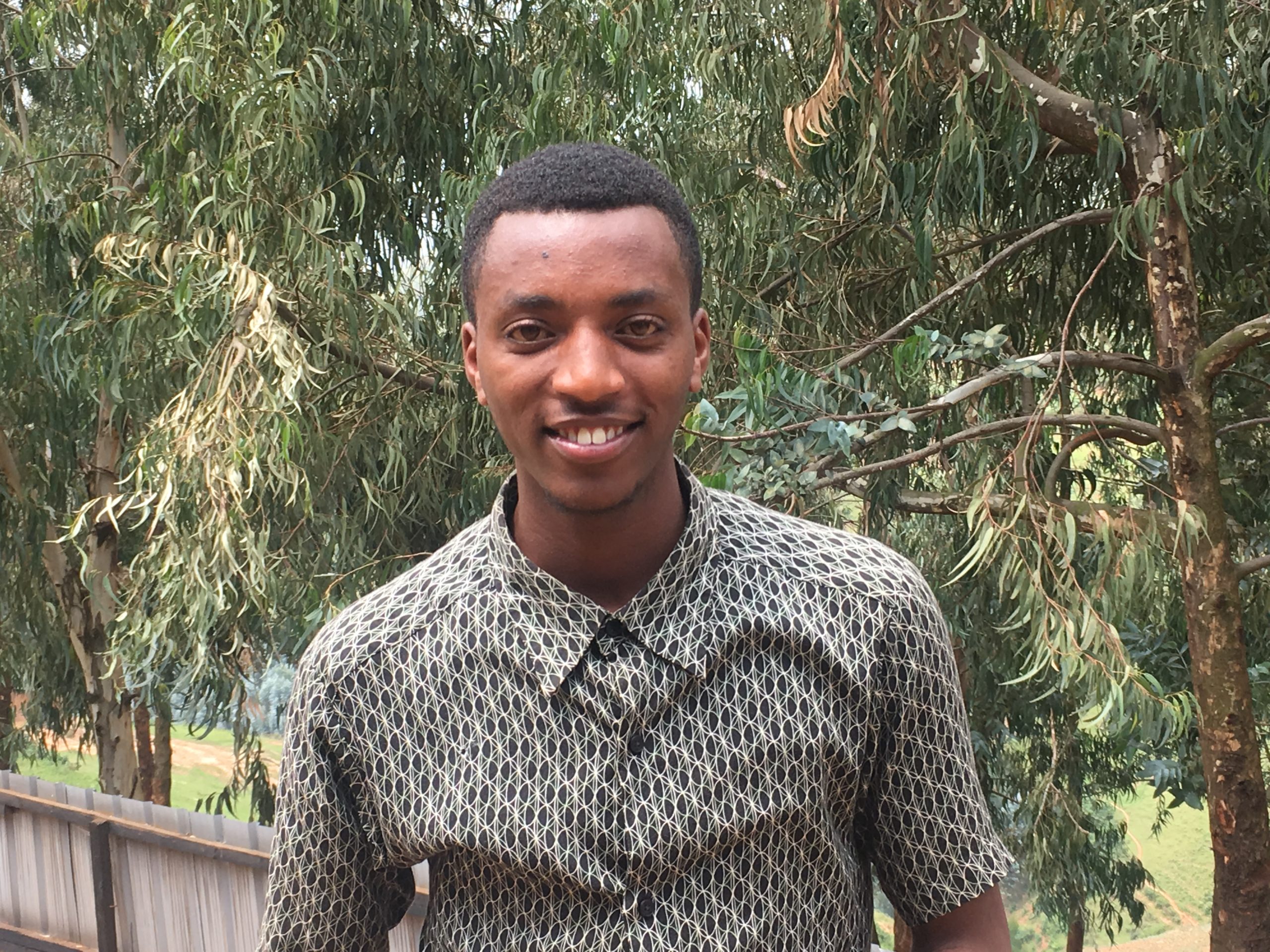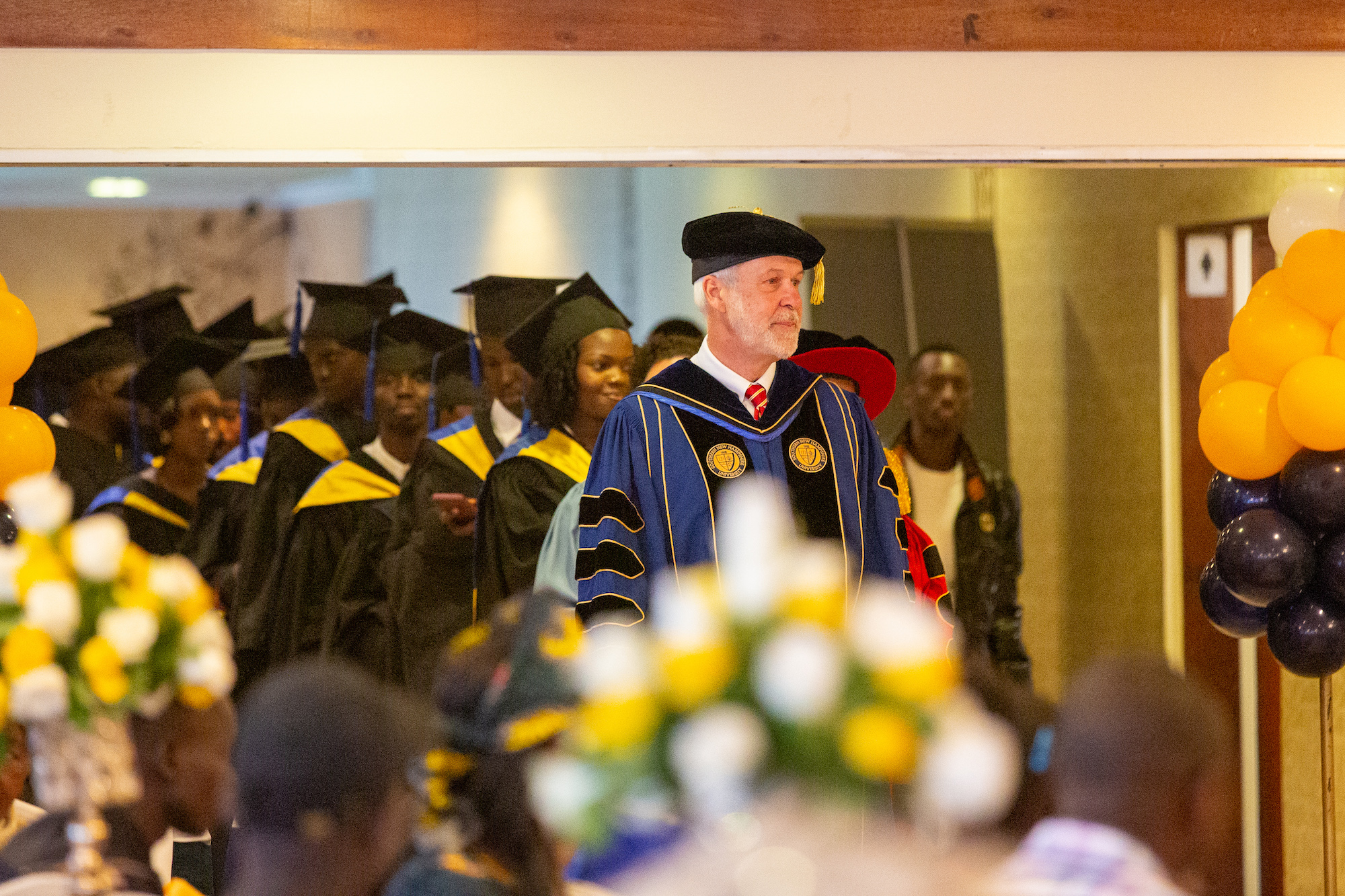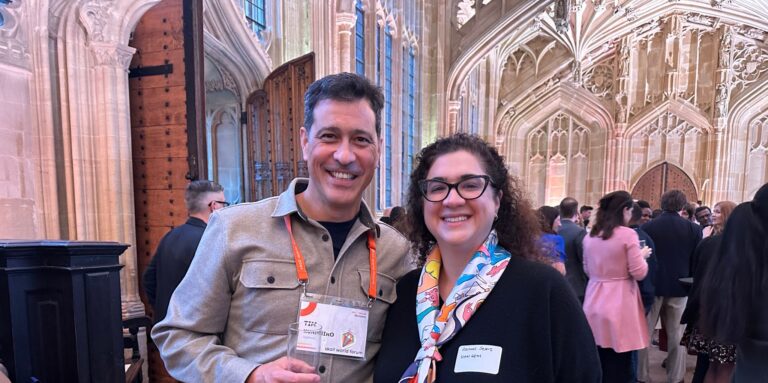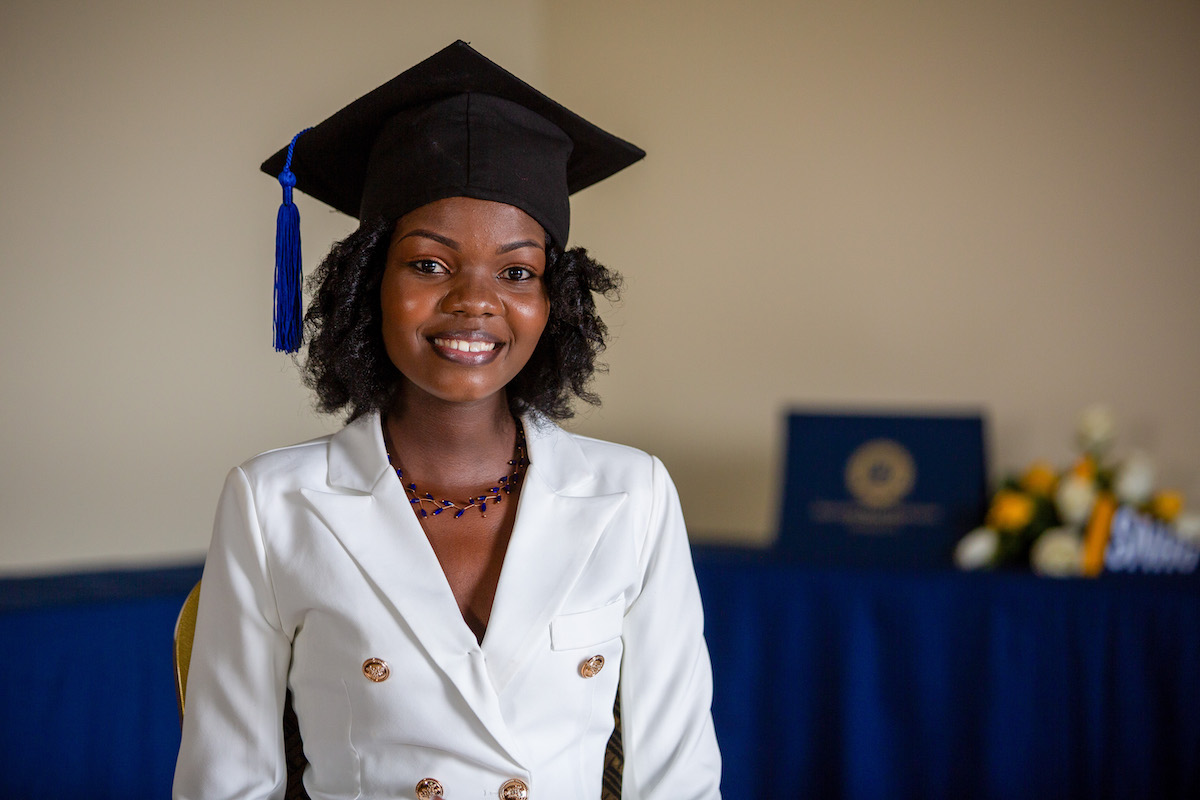Joel Mugisha, SNHU student at Kiziba Refugee Camp, Rwanda, January 19, 2018Joel was born in Kiziba Camp in 1997. His parents are from Congo, and arrived at Kiziba in 1996. After completing primary and ordinary school in Kiziba and advanced school outside the camp, Joel started his SNHU degree in 2017. This interview took place during the bridge phase, before beginning his degree.
What do you like about school and learning?
I like the way students present. I like when they present what they learned because it motivates me as a student. For people who do public speaking well, I like to learn from how they present.
What are you most interested in/excited about as you start your university experience?
The best part is to learn. Learning is my priority in life. I am very interested to learn more about technology because we are living in a world of technology. Especially technology excites me the most.
What scares you the most about starting university?
Something that I’m scared about is that our Course Facilitators tell us we can go to CfA only once we can type 50 words per minute. This is a fear of mine because it is hard to type 50 words per minute and I am eager to start my platform.
What kind of support or help do you receive to address your fears?
We have class called ‘Work Lab’ that Kepler runs. The course facilitator gives us 30 minutes of typing. We get support in that class. We get a lot of practice in this class. They supervise the class and help me. With this structure, I know I am learning. We also have a competition.
What are your goals after graduation?
My first goal is to get a job. I want to earn an income to help my family. We are now living in a community where we have no access to money. When I finish my college and university degree, it is my job to support my family the best I can.
What does it mean to you to earn an SNHU degree?
First, the degree from SNHU is an international degree. This means it’s a great degree. It means I get more experience, and that I am the most competitive for a job because of my international degree from SNHU. It means I’ve learned a lot when I have this degree.
What do you want the world to know about refugee learners?
Many people think that refugees don’t have capacity to do anything. I can say that refugees have the capacity for learning. If you take students in Kiziba camp and compare them to others, they have just as much capacity for studying and learning.



